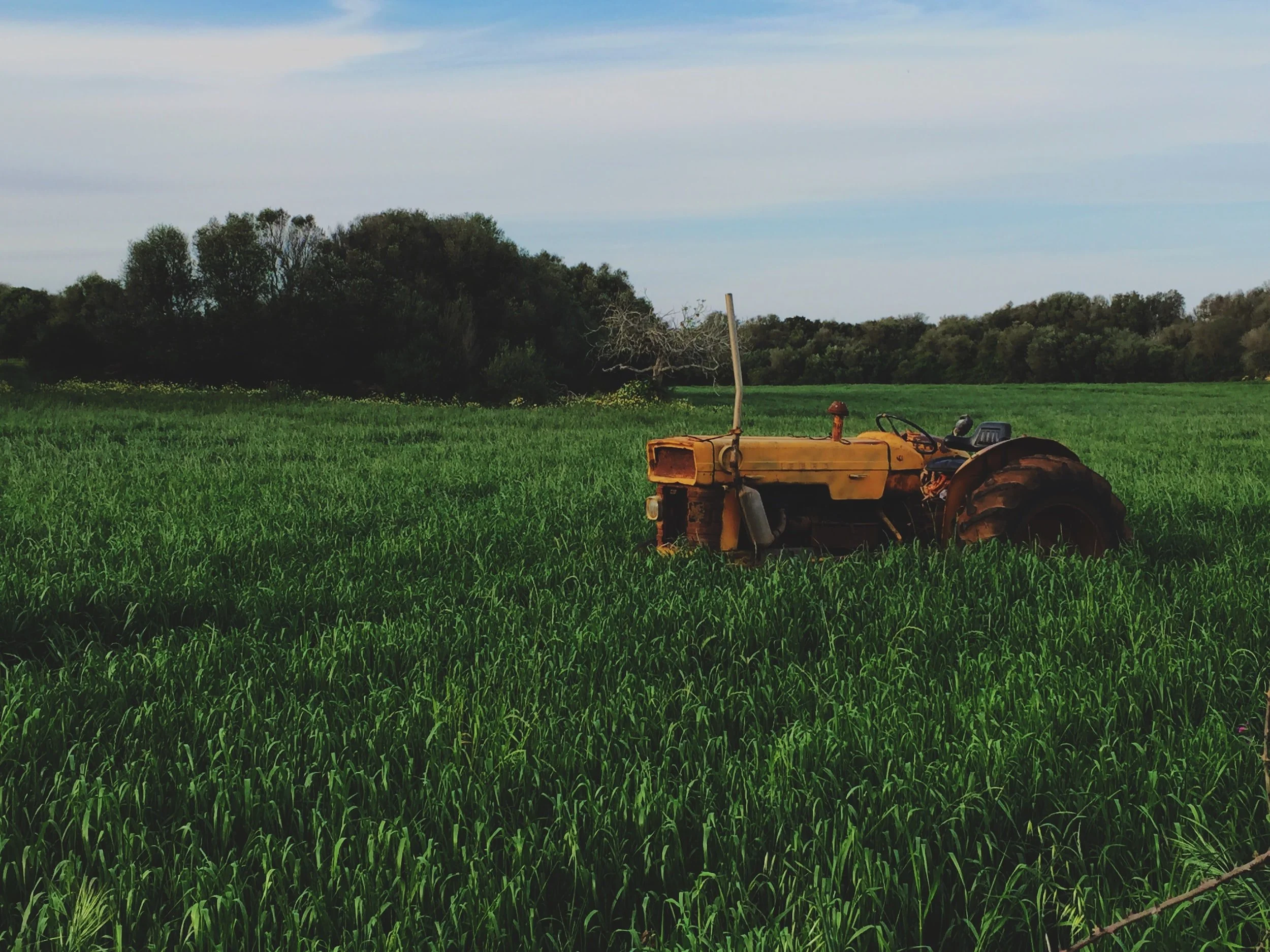Blog By: Breanna Carper
The New Deal was a revolutionary time in the American labor movement, marked by an increase in labor unions and laws protecting American workers.[i] “[L]abor unions fought for better wages, reasonable hours, and safer working conditions,” as well as health benefits, and the end of child labor.[ii] This movement was largely successful and revolutionized many facets of workers’ rights.[iii] Key pieces of legislation during the time, however, explicitly excluded agricultural workers from the newly established rights afforded to most laborers.[iv] Nearly 100 years later, agricultural workers are still subjected to the unreasonable work conditions that spurred the labor movement of the 1930s.[v] While several states have brought about change, it is time for the federal government to step in and ensure that agricultural workers are provided the same rights and protections as laborers in other sectors.
One of the most pivotal pieces of legislation during this period was the Fair Labor Standards Act of 1938 (FLSA).[vi] The FLSA is a federal law which “establishe[d] minimum wage, overtime pay, recordkeeping, and [child] employment standards” for eligible employees in the private sector as well as “in federal, state, and local governments.”[vii] Because virtually all agricultural employees produce goods that are transmitted through interstate commerce, they technically come into the purview of the FLSA, but exceptions are carved out which deny them many of the Act’s protections.[viii] According to the FLSA, the applicable minimum wage rate must be paid to all agricultural employees except those who fall into a number of complex exceptions.[ix] There is a blanket exclusion from mandatory overtime payment for any and all agricultural employees, however. [x]
The creation of the FLSA was highly controversial. Prior to its approval in 1938, members of Congress had proposed seventy-two amendments seeking exemptions, narrowed coverage, lowered standards, and numerous other ways to weaken the bill.[xi] A key point of contention regarding the FLSA turned on labor standards in the South.[xii] To this day, speculation exists that agricultural workers were excluded from these protections in order to continue “virtual slavery” and the ability to exploit minority workers on Southern plantations.[xiii] Today, the demographic of farm workers has shifted such that “nearly fifty percent of the farm labor workforce is made up of undocumented men and women.”[xiv] These workers largely “remain quiet about the exploitative and abusive practices” they are forced to endure because they fear losing their income and being deported if they complain.[xv] Just last year, the owner of a farm labor contracting company pled guilty in a racketeering conspiracy involving the forced labor of Mexican workers after “[f]orcing individuals to work against their will using abusive and coercive tactics.”[xvi]
According to the National Institute for Occupational Safety and Health, agriculture ranks among the most hazardous industries, with farm workers at a “very high risk for both fatal and nonfatal injuries,” including “pesticide exposure, [pulmonary disease], musculoskeletal disorders,” hearing loss, and transportation incidents such as tractor overturns.[xvii] Despite the dangers associated with farm work and the long hours involved, “farm workers have the lowest annual family incomes of any U.S. wage and salary workers.”[xviii] Further, the annual average for those working on farms within the U.S. is sixty hours per week, but during the harvest period it could be as high as eighty hours per week.[xix] In virtually every other sector, the FLSA would require that these workers be compensated at one and a half times their normal hourly rate for anything past forty hours in a single week, but the same does not ring true for these agricultural employees.[xx]
While agricultural workers are denied overtime protections on a federal level, several states have recently made changes within their own borders to phase in overtime pay.[xxi] For example, California, Washington, New York, and Oregon have all expanded overtime protections for these workers in recent years.[xxii] Several attempts have been made on a federal level to enhance agricultural worker protection in the realm of overtime and minimum wage protections, but none have been successful to date. Most recently, U.S. Senator Alex Padilla (D-CA) introduced the Fairness for Farm Workers Act in an attempt to update labor laws and ensure farm workers receive fair wages and compensation.[xxiii] Numerous advocates spoke out in support of the act, which would have gradually implemented overtime pay over the course of four years.[xxiv] Ultimately, however, it never seemed to gain traction and there is no recorded action further than being referred to the House Committee on Education and Labor.[xxv] Opponents of the implementation of overtime for agricultural workers often argue that requiring overtime pay would be unsustainable and result in a reduction of “take-home pay for employees [by] the shortening of work hours” and a reduction in the total number of jobs through a switch to mechanization or less-labor intensive crops.[xxvi] Yet, economists estimated that even if the average farmworker earnings were doubled and the additional cost paid for entirely by consumers, it would only result in the typical household paying an additional $61.50 per year on fresh fruits and vegetables.[xxvii]
In conclusion, it is beyond time for the federal government to implement policy changes that will afford agricultural workers minimum wage and overtime protections that have been standard for other laborers for nearly a century. Farmworkers keep the American economy afloat and food on our tables, despite extremely difficult labor and hazardous working conditions. These workers deserve the same protections that have existed in virtually every other industry since the 1930s.
[i] Bicentennial History of the American Worker, U.S. Dep’t of Labor, https://www.dol.gov/general/aboutdol/history/amworkerintro (last visited Feb. 17, 2023) [https://perma.cc/4GVT-NGQF].
[ii] Labor Movement, History Channel (Mar. 31, 2020), https://www.history.com/topics/19th-century/labor (last visited Apr. 13, 2023) [https://perma.cc/89HR-LWMY].
[iii] Id.
[iv] Kamala Kelkar, When labor laws left farm workers behind- and vulnerable to abuse, PBS (Sept. 18, 2016), https://www.pbs.org/newshour/nation/labor-laws-left-farm-workers-behind-vulnerable-abuse [https://perma.cc/3LPD-KE8K].
[v] Id.
[vi] Bicentennial History of the American Worker, supra note i; 29 U.S.C. § 201.
[vii] Wages and the Fair Labor Standards Act, U.S. Dep’t of Labor, https://www.dol.gov/agencies/whd/flsa (last visited Feb. 17, 2023) [https://perma.cc/22U4-W87M].
[viii] Fact Sheet #12: Agricultural Employers Under the Fair Labor Standards Act, U.S. Dep’t of Labor (Jan. 2020), https://www.dol.gov/agencies/whd/fact-sheets/12-flsa-agriculture [https://perma.cc/W48B-CW6P].
[ix] 29 U.S.C. § 203(e)(3); 29 U.S.C. § 213(a)(6).
[x] 29 U.S.C. § 213(b)(12).
[xi] Jonathan Grossman, Fair Labor Standards Act of 1938: Maximum Struggle for a Minimum Wage, U.S Dep’t of Labor, https://www.dol.gov/general/aboutdol/history/flsa1938#:~:text=The%20bill%20was%20voted%20upon,Congress%20had%20proposed%2072%20amendments (last visited Feb. 17, 2023) [https://perma.cc/Y5ZJ-ZQLP].
[xii] Id.
[xiii] Kelkar, supra note iv.
[xiv] Melissa Viola, Farm Workers Pay the Price for Our Cheap Produce, Aspen Inst. (Jan. 28, 2022), https://www.aspeninstitute.org/blog-posts/farm-workers-pay-the-price-for-our-cheap-produce/ [https://perma.cc/B9D6-K6Y7].
[xv] Id.
[xvi] Owner of Farm Labor Contracting Company Pleads Guilty in Racketeering Conspiracy Involving the Forced Labor of Mexican Workers, U.S. Dep’t of Justice (Sept. 27, 2022),
https://www.justice.gov/opa/pr/owner-farm-labor-contracting-company-pleads-guilty-racketeering-conspiracy-involving-forced [https://perma.cc/9M3Y-JP5V].
[xvii]Agricultural Safety, Ctr. for Disease Control and Prevention (Mar. 3, 2023), https://www.cdc.gov/niosh/topics/aginjury/default.html#:~:text=Agriculture%20ranks%20among%20the%20most,for%20fatal%20and%20nonfatal%20injuries [https://perma.cc/M6KY-8EHQ].
[xviii] Low Wages, Nat’l Farm Worker Ministry, https://nfwm.org/farm-workers/farm-worker-issues/low-wages/#:~:text=The%20average%20farm%20worker%20family,different%20factors%20that%20affect%20income (last visited Feb. 17, 2023) [https://perma.cc/4JEZ-HJ8M].
[xix] How Many Hours Do Farmers Work, Farm & Animals, https://farmandanimals.com/how-many-hours-do-farmers-work/ (last visited Feb. 17, 2023) [https://perma.cc/3TQU-V6FY].
[xx] Wages and the Fair Labor Standards Act, supra note vii.
[xxi] Karen Bohnert, More States Attempt to Manage Overtime Laws for Agricultural Employees, Dairy Herd Mgmt. (Jan. 25, 2023), https://www.dairyherd.com/news/labor/more-states-attempt-manage-overtime-laws-agricultural-employees [https://perma.cc/Z363-27WZ].
[xxii] Id.
[xxiii] Padilla Introduces Legislation to Strengthen Labor Protections to Ensure Farm Workers Receive Fair Wages, Alex Padilla U.S. Senator for Cal. (June 23, 2022),
https://www.padilla.senate.gov/newsroom/press-releases/padilla-introduces-legislation-to-strengthen-labor-protections-to-ensure-farm-workers-receive-fair-wages%EF%BF%BC/ [https://perma.cc/7RUS-4R23].
[xxiv] Id.
[xxv] H.R. 3194, 117th Cong. (2021).
[xxvi] Agricultural overtime mandate ignores economic reality for Oregon farm and ranch families, Or. Farm Bureau (Jan. 4, 2022),
https://oregonfb.org/agotrelease3/ [https://perma.cc/EF3Q-JFC4].
[xxvii] Daniel Costa & Philip Martin, How much would it cost consumers to give farmworkers a significant raise?, Econ. Pol’y Inst. (Oct. 15, 2020), https://www.epi.org/blog/how-much-would-it-cost-consumers-to-give-farmworkers-a-significant-raise-a-40-increase-in-pay-would-cost-just-25-per-household/#:~:text=For%20a%20typical%20household%20or,retail%20spending%20rises%204%25) [https://perma.cc/3M7J-6ZZS].



